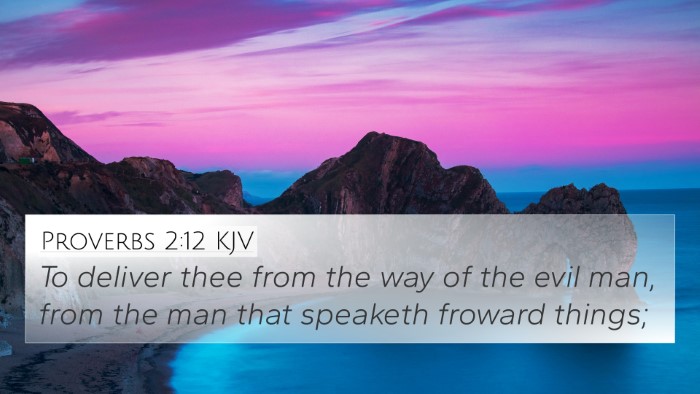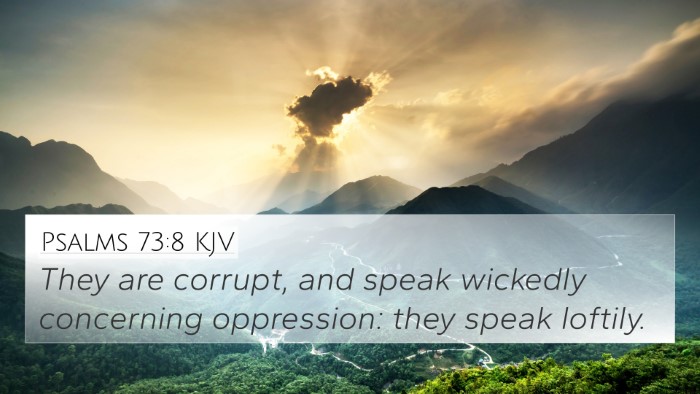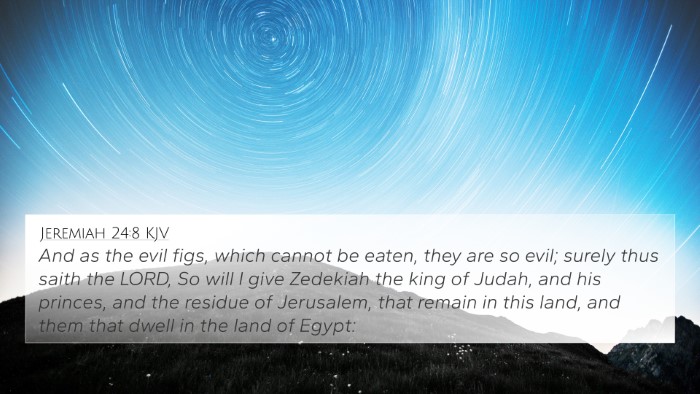Understanding Proverbs 6:12
Proverbs 6:12 states, "A worthless person, a wicked man, goes about with crooked speech." This verse introduces the archetype of a deceitful individual, emphasizing the moral character and behavior that leads to destruction and chaos.
Interpretation and Meaning
The essence of this verse highlights the characteristics of a wicked person, often portrayed in biblical literature. The term "wretched" implies someone who is not just flawed but actively engages in harmful behaviors. To better understand its implications, we will explore the insights from public domain commentators like Matthew Henry, Albert Barnes, and Adam Clarke.
Insights from Commentaries
-
Matthew Henry:
Henry explains that a "worthless person" signifies someone devoid of virtue, whose actions and speech are intentionally misleading. This individual represents the antithesis of what is righteous and is typically surrounded by chaos and disorder.
-
Albert Barnes:
Barnes elaborates that the term "crooked speech" refers not only to deceitful words but also to manipulative behavior. This highlights the moral decay that can stem from such a character, warning the readers about the dangers of associating with wickedness.
-
Adam Clarke:
Clarke notes that the "wicked man" mentioned symbolizes a broader category of individuals who leverage their cunning for selfish gain. His portrayal evokes the negative consequences stemming from such actions not only for the wicked individual but also for those caught in their trap.
Related Bible Cross References
Proverbs 6:12 resonates with multiple scripture passages, illustrating a theme of wickedness and the consequences of deceitful behavior. Below are significant cross-references that enhance our understanding:
- Proverbs 10:32 - "The lips of the righteous know what is acceptable, but the mouth of the wicked, what is perverse."
- Proverbs 11:3 - "The integrity of the upright guides them, but the crookedness of the treacherous destroys them."
- Proverbs 12:5 - "The plans of the righteous are just, but the advice of the wicked is deceitful."
- Proverbs 16:28 - "A dishonest man spreads strife, and a whisperer separates close friends."
- James 3:14-15 - "But if you have bitter jealousy and selfish ambition in your hearts, do not boast and be false to the truth. This is not the wisdom that comes down from above, but is earthly, unspiritual, demonic."
- Matthew 12:34 - "For out of the abundance of the heart the mouth speaks."
- Galatians 6:7 - "Do not be deceived: God is not mocked, for whatever one sows, that will he also reap."
Thematic Connections
The offense of wickedness and the value of integrity are recurrent themes throughout the Bible. By applying tools for Bible cross-referencing, we can see the connections between Proverbs 6:12 and various themes present across both the Old and New Testaments.
Cross-Referencing Bible Study
Utilizing a Bible concordance or cross-reference guide facilitates a deeper exploration of the scriptures. Understanding the connections between Bible verses allows us to discern God's warnings regarding immoral behavior and the virtues of righteousness. For individuals seeking to engage in cross-referencing Bible study, these methods reveal underlying biblical themes and character behaviors.
Conclusion
Through a comparative Bible verse analysis of Proverbs 6:12 alongside numerous cross-references, one can gain profound insights into the spiritual and moral lessons embedded within scripture. Recognizing the intertwining relationships among various biblical texts enriches our understanding of God's message regarding morality, integrity, and the consequences of wicked behavior.
As we navigate through the complexities of these biblical themes, we are reminded to continuously seek righteousness and discern the implications of our words and actions—following the example set forth in the teachings of the Bible.
























